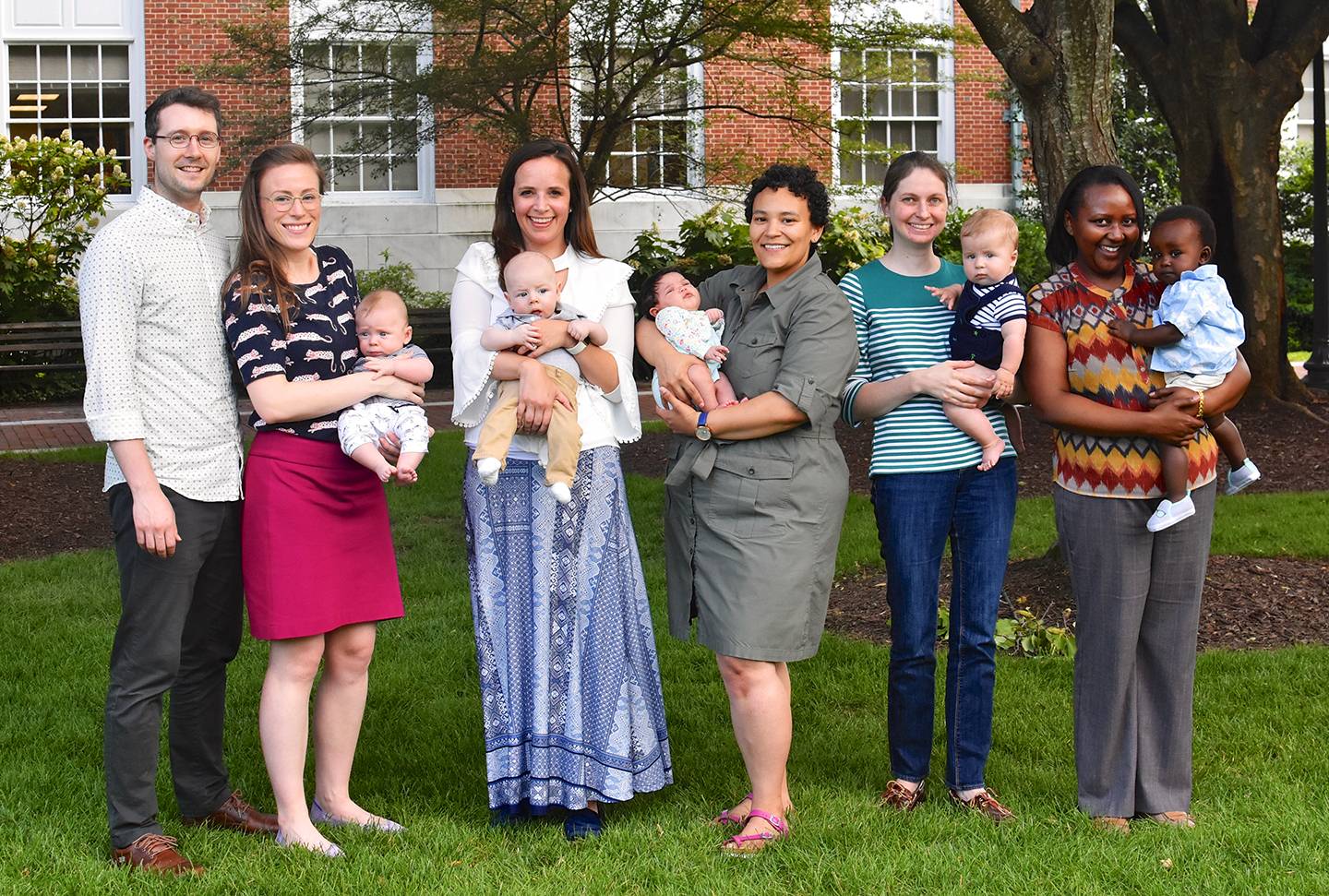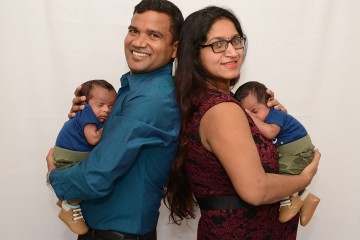Oh baby—Johns Hopkins University's parental leave policy is turning 1!
Last summer, the university introduced benefits to help new moms and dads balance their professional lives with the needs of their growing families. Parents can now receive four weeks of leave at full pay after their child is born or placed through adoption, and employees who give birth get an additional six weeks of paid birth recovery.
Video credit: Len Turner and Dave Schmelick
Over the past year, 558 full- and part-time employees have taken advantage of those new benefits—169 who were granted parental leave and 389 who were granted both parental leave and birth recovery leave.
"We're thrilled by our community's response to the policy," Johns Hopkins University President Ronald J. Daniels said. "This is a wonderful moment in which Johns Hopkins can register our commitment to our employees and their work-life balance and give people the opportunity to enjoy early bonding with their child without the pressures of work. It's what we believe a good organization should do."
Before the policy took effect on July 1, 2017, new parents relied on the reduced salary from short-term disability, used accrued sick and vacation time, or took leave without pay.
Additional changes put in place a year ago allow employees to use sick days for child bonding, increase adoption assistance, and offer greater accommodations to graduate students and postdocs to take time off when they become parents.

Image caption: First-time parents and their babies, from left to right: Daniel and Christine Hertenstein with son Percy, Jasmine McNeil with son Heath, Erin Burk with daughter Alice, Veronica Feldkircher-Reed with son Liam, and Elizabeth Musyoki with son Josiah.
Image credit: Lauren Hauser
"I had saved up my sick leave and my vacation days so that it could be home for at least two months," said Elizabeth Musyoki, an administrative coordinator in the Department of Cardiology at the School of Medicine whose son, Josiah, was born on July 29. "So when I heard the news about the maternity leave, I was so excited. It just worked out perfectly."
Added Erin Burk, an administrative coordinator for the Whiting School of Engineering's Center for Educational Outreach whose daughter, Alice, was born on May 11: "I don't know what I would've done without that benefit. It's allowed us to have that time together that you just can't get back."
For more information about benefits for new parents, see the Family Leave for New Parents policy (for faculty and staff) or the New Child Accommodations for Full-time Graduate Students and Postdoctoral Trainees policy.
Posted in University News, News+Info, Health+Well-Being










